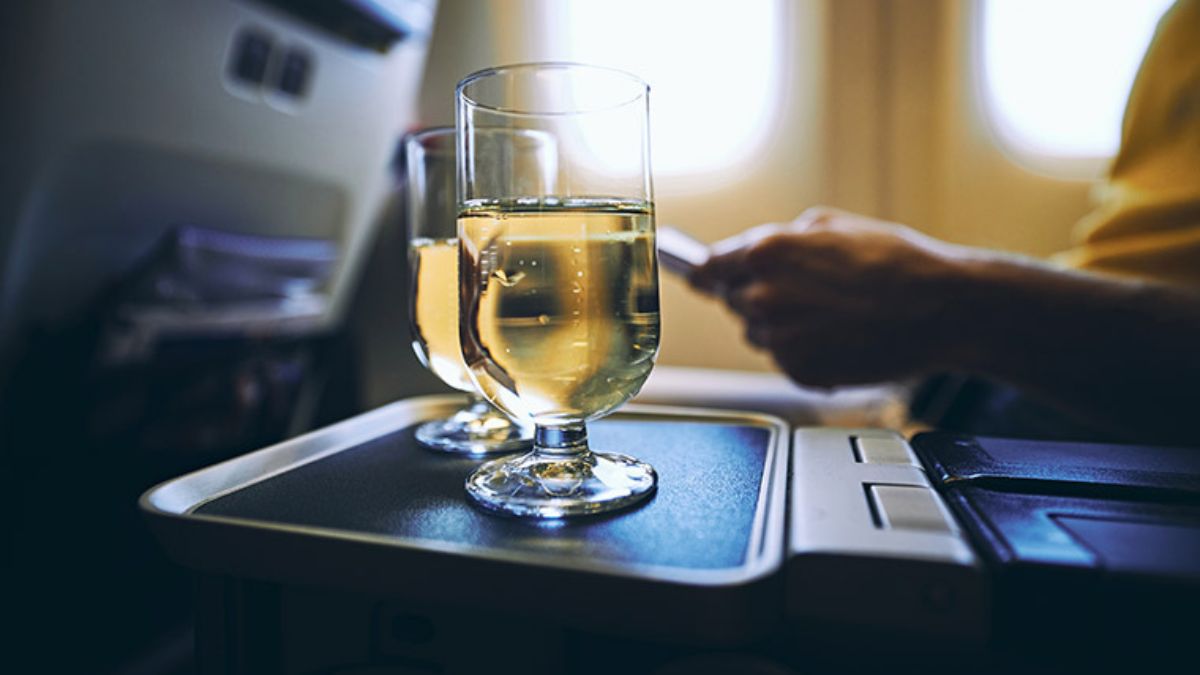Drinking alcohol during a flight, combined with cabin pressure at cruising altitude, may threaten a sleeping passenger’s heart health, especially on long-haul flights, suggests a German study published in the journal Thorax.
Blood oxygen levels can drop to around 90 per cent at cruising altitude, even in young and healthy adults. Anything lower than that is considered hypobaric hypoxia, or low blood oxygen levels at high altitude. Alcohol is already known to relax blood vessel walls and increase heart rate during sleep, an effect similar to that of hypobaric hypoxia.
To study the impact of alcohol plus cabin pressure, researchers recruited 48 people aged 18 to 40. Half of them were assigned to a sleep lab under normal air pressure and half to an altitude chamber that mimicked cabin pressure at cruising altitude.
From each group, 12 members were asked to drink vodka that roughly equaled two cans of beer or two glasses of wine before they slept. The participants’ sleep cycle, oxygen levels and heart rate were continuously monitored.
The blood oxygen levels of those who drank and slept in the altitude chamber fell to about 85 per cent, and their heart rate increased to an average 88 beats per minute. That was considerably worse than the non-drinkers in the altitude chamber and the participants in the sleep lab. Oxygen levels below the healthy norm lasted for more than three hours with alcohol consumption and cabin pressure.
Higher alcohol consumption could further increase the observed effects, especially among older adults and those with pre-existing medical conditions such as cardiac or pulmonary disease. Sleep quality was also worse for the alcohol and altitude combo group, suggesting that inflight alcohol consumption may not provide a restful sleep as travellers think.
“Cardiovascular symptoms have a prevalence of 7 per cent of inflight medical emergencies, with cardiac arrest causing 58 per cent of aircraft diversions,” the authors wrote.



